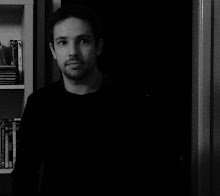Michael Ayrton (1921-1975) was an English artist, illustrator, author, set designer, teacher and art critic. His mother was a suffragette and would later become MP for Hendon North and chairman of the Labour party; his father a poet, critic and alchoholic. By the age of 20, he was designing sets for John Gielgud's production of Macbeth. From an article by Jenny Uglow at the Indepenent:
'Insufferable' was a word people often applied to the young Ayrton. He was staggeringly precocious: at 13 his anti-Nazi cartoons appeared in Labour; at 14, having been expelled for seducing the French mistress in a haystack, he designed the Underground posters for Little Lord Fauntleroy. At 15, he ran away to the Spanish Civil War; a year later he was mingling with the literati of Vienna. A dazzling talker, he was bumptious, ambitious, avidly curious. Although he mellowed (slightly) he never lost his competitive thrust, as painter, sculptor, writer and broadcaster - on the eve of his death in 1975, at the age of 54, he was bullishly looking forward to making a 14-part television series that would not only be better but longer than Kenneth Clarke's Civilisation (which he loathed) and Jacob Bronowski's The Ascent of Man (which he admired but derided).
In Europe he encountered Giorgio de Chirico and Pavel Tchelitchew, both of whom he acknowledged as influences, and shared a studio in Paris with John Minton and Michael Middleton until forced to flee the war in 1939. He taught at the Camberwell School of Art, and in 1944 became art critic at the Spectator. He was associated with the English Neo-Romantics such as Paul Nash, Graham Sutherland and John Piper, and took up sculpture with the encouragement of Henry Moore, who called him a "significant eccentric". The mythical figures of Icarus, Daedalus and the Minotaur are recurrent in his later work. Upon reading The Maze Maker, his 1967 novel of the Daedalus myth, the millionaire banker Armand Erpf commissioned Ayrton to design a maze in the Catskill Mountains.
Ayrton is largely forgotten nowadays, but his vision represents a peculiarly British - or English - strain of Modernism that is, I think, slowly being rediscovered. Some of his work was featured in the Tate's Dark Monarch exhibition last year.






































.jpg)


















Much thanks for curating this material. I wasn't familiar with Ayrton until I stumbled across the cover he did for Bradbury's Dark Carnival, which is quite striking, and a quick search led me here. Looks like there's much more for me to discover!
ReplyDelete